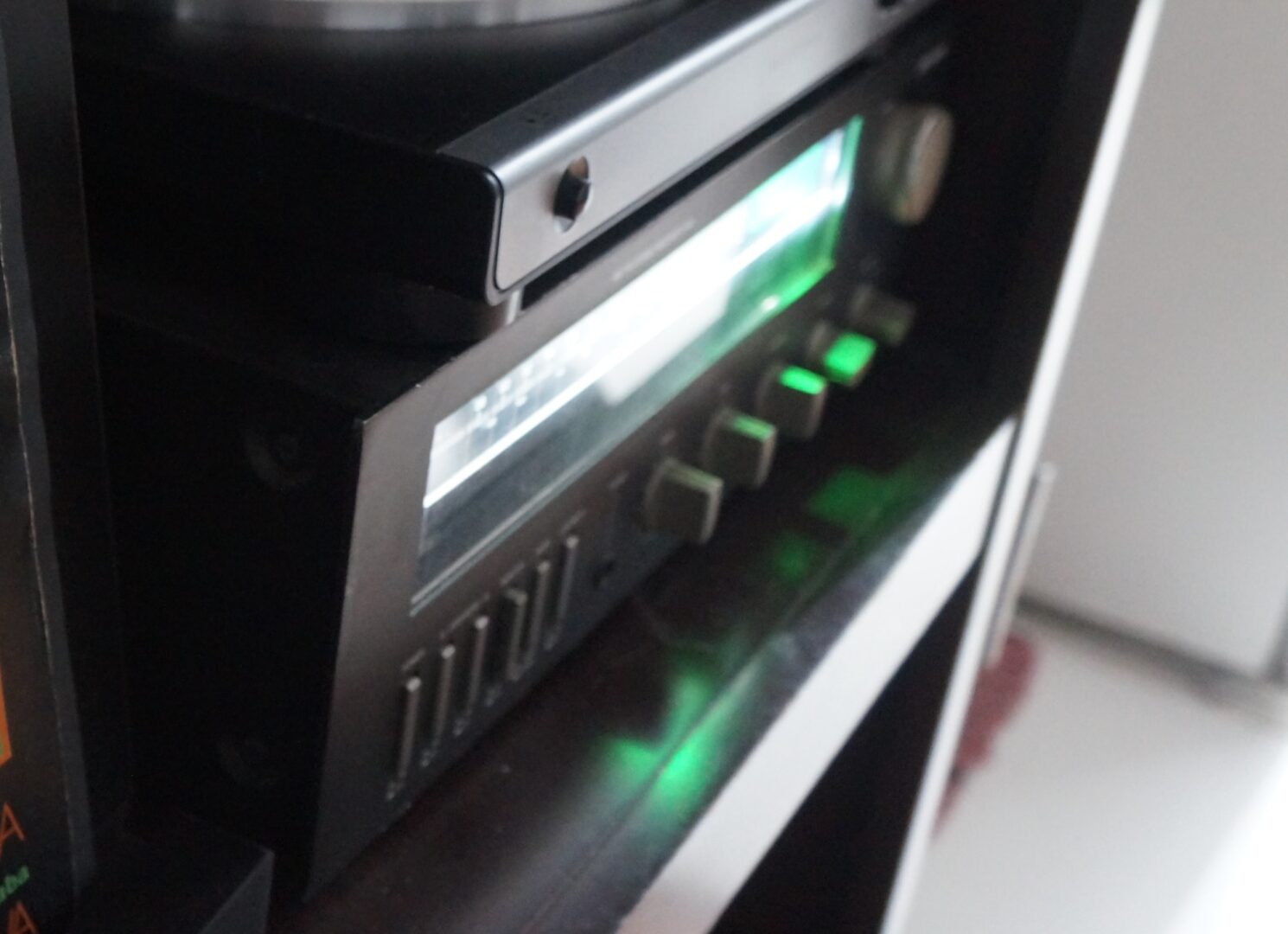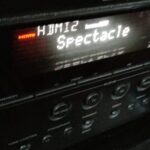How To Prevent Receiver From Turning Off (9 Things To Know)
How To Prevent Your Receiver From Turning Off (9 Things To Know)

There are multiple ways to prevent your receiver from turning off that includes keeping it properly ventilated & clear of dust, turning off HDMI CEC, making sure wire connectors aren’t touching, using speakers that have a compatible impedance, ensuring the electrical current reaching the receiver isn’t underpowered, turning off the sleep timer, and making sure the wires themselves aren’t damaged.
Here’s an interesting scenario; imagine you’re watching your favorite show when all of a sudden your receiver shuts down out of nowhere.
No warning what so ever, it just completely shuts down.
It’d probably be pretty unexpected right?
Well there’s certain conditions that can cause this to happen (it’s actually happened to me before)
So what I wanted to do today is offer a guide on how to prevent your receiver from turning off and shed a little more light on why it is exactly that this can sometimes happen.
(Before doing anything though, be sure to turn your equipment off before adjusting any wire connections or anything of the sort)
Make Sure There’s Proper Ventilation For Your Receiver
So the first thing you want to do is make sure your receiver has proper ventilation in the area it’s placed in.
Even the best receivers still need proper airflow as they generate heat internally.
if there’s not enough of it, then it’s definitely possible for the unit to turn itself off as a protective measure.
But there’s a few things to note when optimizing for adequate airflow.
Firstly, you don’t want to place anything on top of the receiver.
Whether it’s a speaker, another device, etc, nothing should be placed on top of the receiver as this can directly cause it to overheat.
You’ll notice the top and back of the receiver will likely have ventilation holes/vents that allows air to circulate through the internal circuitry.
However blocking these by placing something on top of them can bring about issues for the device so definitely avoid this.
But what’s just as important is placing the receiver is in an area with a lot of air flow.
For example if you place the receiver in an entertainment center, make sure it’s not a completely enclosed area — while also leaving a few inches on each side for ventilation.
The back of the entertainment center should also be somewhat open to allow the receiver to circulate properly.
Putting a receiver in a cabinet with no breathing room is definitely a big home theater mistake that can be bad for the unit long term and certainly affect how long the receiver lasts.
There should be plenty of space with nothing directly on top or to the side of the device.
Conversely, if you did have to place the unit in a smaller space, you could install an active ventilation system by way of a cooling or intake fan within that space.
Keep The Receiver Clear Of Any Dust
If there’s excess dust in any parts of the receiver, it could be causing issues since even a small layer of dust can basically be an insulator for the heat the receiver generates.
To get rid of the dust, a canless electronic air duster that uses a power source should be used since unlike a compressed air can, it doesn’t leave a liquid residue which can potentially damage the electronic internals, while still helping to remove dust with dry airflow.
Check Availability Of The Electric Air Duster
Be Aware If The Device Is Overheating & How To Prevent It
Whether it’s from lack of ventilation, accumulation of dust, or some other reason, it’s also possible that your receiver is shutting down because it’s over heating.
A lot of modern receivers, where if the internal circuitry gets too hot, it’ll shut down entirely to prevent permanent damage from
If the receiver feels abnormally hot to the touch then it’s possible that this is what’s happening.
To prevent your receiver from overheating, there’s a number of things you can do.
Placing it on a wire rack for better ventilation, removing the dust like previously mentioned, or even pointing a fan towards the unit to help cool it off.
By simply having proper ventilation and airflow, that can be a good way in preventing your receiver from overheating which may cause it to turn off.
Also never put the receiver near a heat source or where there’s lots of sunlight shining as this can also contribute to overheating.
Something that may prevent this too is using the proper speakers for your receiver since if they don’t adhere to the specifications of your receiver, this can cause issues including an increase in temperature.
Keep in mind that volume can be a factor too as the louder your speakers are, the more the power draw and farther the receiver is pushed.
But if the receiver gets too hot, it can also affect your volume and cause your speakers to become quieter as well.
Check For Handshake Issues With The HDMI Connection
I know personally from experience that sometimes a handshake issue with the HDMI connection can be directly responsible for the receiver inexplicably shutting down.
I’ve found that each receiver and electronics device tends to handle HDMI ARC and HDMI CEC slightly different, and sometimes the chain of events where the devices should work fine together simply don’t.
HDMI CEC basically allows multiple devices connected to the same source to talk to each other so to speak, which in turn allows you to control multiple devices with one remote.
However if this feature is shutting the receiver off try turning this setting off in the settings to see if it helps.
It might be called power off control or device control, or something similar if you don’t see a setting for HDMI CEC.
If that doesn’t help, try using the receiver separately without HDMI ARC to see if maybe this helps.
Devices can be finicky sometimes, so this is definitely something to keep in mind.
Ensure Your Receiver Supports The Impedance Of Your Speakers
Talked about this before but impedance is basically a measure of electrical resistance denoted by a term called Ohms.
The higher this Ohm number, the higher the resistance and less electricity that gets through while the lower the Ohms, the more electricity that gets through.
This is important because every receiver has a specific impedance range it can handle, and if you happen to use speakers that have a higher or lower impedance that’s outside this range, then this can directly cause issues with your receiver.
Check what your receiver is rated to handle and make sure your speakers fall within that impedance range since that’ll say what they’re able to handle.
Make Sure The Electrical Current Reaching The Receiver isn’t Under Or Overpowered
Another possibility is that there isn’t enough current actually reaching your receiver.
When there’s an inadequate electrical current, the receiver may turn itself off as a way to protect itself from getting damaged.
This can happen when there’s a bunch of things that use a lot of electricity that are then plugged into the same place.
In this case, try plugging the receiver into a different outlet to see if it remedies the issue.
This can also affect your equipment in other ways such as your center channel speaker becoming too quiet to hear.
On the other hand, it’s always possible that the receiver could be getting too much current and in that case, trying a different outlet may also help.
See If The Wire Connectors Are Touching
Here’s another fix that just might help, ensuring the wire connectors and wires themselves aren’t touching.
When the speaker wire or wire connectors touch the back panel of the receiver or come in contact with the other connectors, it can short circuit the receiver causing it to turn off.
Make Sure The Wires Aren’t Damaged
Then there’s also the possibility that the wires themselves could be damaged.
Like I previously mentioned, if there’s any part of the wire touching the back panel of the receiver, including individual stands, it can cause it to turn off.
Check to make sure none of the wires are frayed or damaged.
If you notice there is a damaged wire, you can either use a wire stripper to get rid of that particular portion of the wire, or simply replace it entirely.
Check If There’s A Sleep Timer Enabled
Yet another reason your receiver could be turning off is there’s some kind of sleep timer or standby feature enabled in the settings.
These are features designed to power the receiver off after either not sensing an input for a specific period of time, or to turn the receiver off at or after a designated time that’s set manually.
While helpful if you intentionally set it, enabling by mistake could be the root of a sudden switching off of the device.
By turning these standby features off, it may help fix the issue.
Final Thoughts
Your receiver randomly shutting off can be indicative of a separate issue, but hopefully this guide was helpful in remedying the issue.
I’ve definitely experienced this myself and know it can certainly be an annoyance to figure out why that’s happening.
From a lack of ventilation to something as simple as a sleep timer being enabled, there can be any number of reasons as to why it may shut off.
It could even potentially mean that something internally failed, and the receiver may need to be repaired or even replaced.
In that case, while I covered some of the best home theater receivers previously, 2 awesome ones that I would recommend are the Denon AVR-S760H receiver for surround sound, and the Sony STRDH190 receiver for stereo sound.
But that’s it for now. If you have any questions, reach out and I’ll answer to the best of my knowledge.
Until next time, make it easy, keep it simple.
About Me

Jay
Hey everyone it’s nice to meet you. I'm Jay, writer & founder of the site Easy Home Theater. I've been with this hobby of home entertainment for many years now. I decided to create this site to be a helpful resource, and share everything that I've learned from personal experience with you. I also happen to be a huge gamer, lover of all things tech related, and a major fitness buff (love weightlifting)
Contact: Contact Jay
Facebook: https://www.facebook.com/Easyhometheater/
X: https://x.com/easyhometheater
Pinterest: https://www.pinterest.com/easyhometheater/pins/
Instagram: https://www.instagram.com/easyhometheater/
Followit: https://follow.it/easy-home-theater
Bluesky: https://bsky.app/profile/easyhometheater.bsky.social
2 Comments so far:
-
-
I’m not particularly sure since it could be any number of things. Are the connectors in the back of the receiver touching? I can’t really think of a setting that would cause it to shut off unless it was like some sort of timer or power saving mode or something.
-





Hi I have onkyo amplifier and I never had a problem until a few days ago I pushed a button to turn it on and then it shuts off right away after a second or 2 it does this all the time Maybe I pushed it wrong button somehow in the middle of the night I can’t get it working I tried onl the appliances which I hooked up to the receiver I disconnected I tried this I tried that but it still does the same it shuts off and no it works but it just shuts it off so what is the problem